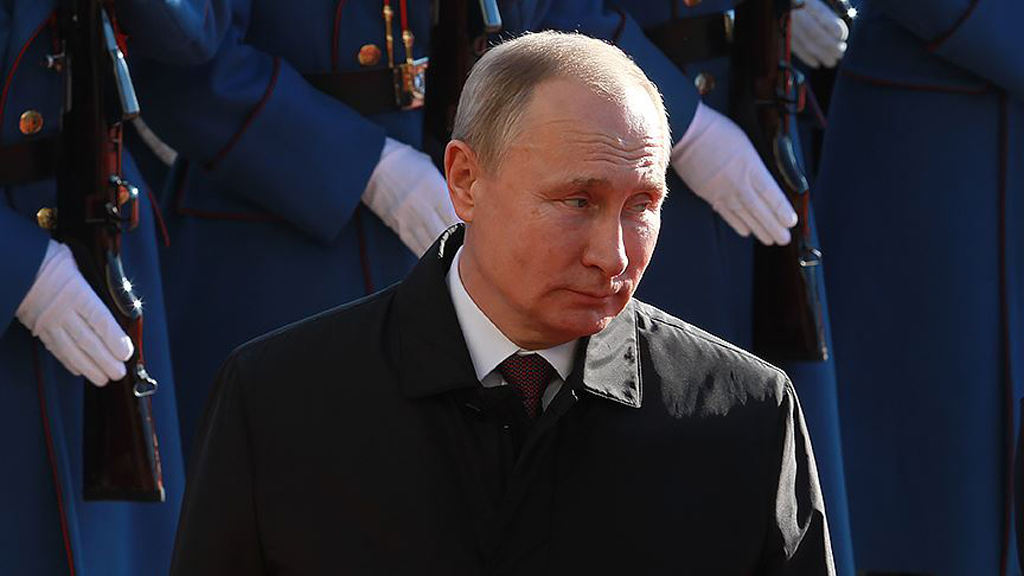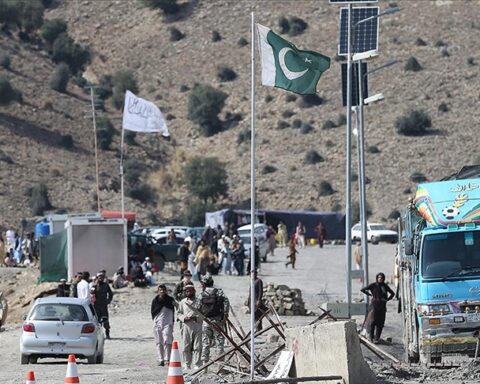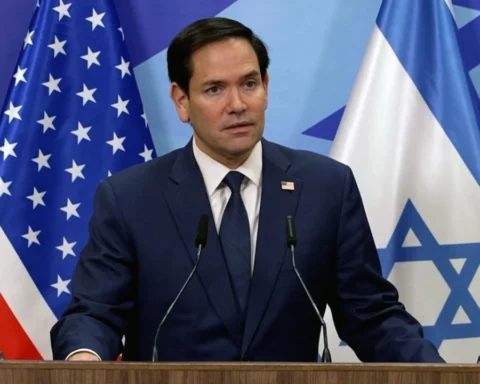In analyzing the process by which the Russia-Ukraine war will end, the most critical factor, as I have argued before, is that by not defeating Ukraine, Russia already has lost the war. Russian President Vladimir Putin’s primary interest was in creating and controlling a buffer between Russia and Poland on the eastern edge of NATO. Beyond that, he wanted to recover Russia’s status as a great power, which it had held from the end of World War II to the collapse of the Soviet Union. When it lost this status, it lost its dominion over Eastern Europe and the eastern half of Germany. It also lost unchallenged command of the South Caucasus and Central Asia, ceased to be more powerful than China and surrendered much of its influence in the Middle East. Its power in the Third World withered as well, losing its place to China – now the only true rival of the United States.
For Russia, the loss of military significance was accompanied by an inability to become a major economic power. Under the czars and the communists, Russia had always been an economic weakling. Although it had vast and valuable lands, as well as a reasonably educated population, Russia has continued to be what can most kindly be called an underperforming economy.
Russia’s decline started and ended well before Putin became president, of course. His rise to power depended on the private sector – the oligarchs who, in the wake of the Soviet Union’s collapse, consolidated a substantial portion of the economy and integrated into the global economic system. The oligarchs were the significant force that made Putin president, and the Russian economy had by then developed nicely, considering where it had started.
Putin held a traditional Russian view on high national priority: securing Russia from invasion and intrusion from the outside. From Putin’s point of view, the only way for the country to emerge economically was to be secure from attack. For Putin, that meant recovering as much of the buffer zone as he could from the losses Russia suffered in the 1990s, and thus securing Russia’s western border.
In Ukraine, he obviously overestimated the power of the Russian military and underestimated the resilience of the Ukrainians, not to mention the support they received from the U.S. and Europe. Putin believed that Russia would secure a victory before the U.S. and Europe stepped in.
The failure to rapidly overrun Ukraine has led to another problem: the economy. The Russian economy deteriorated as resources were diverted to the military and away from the civilian sector. Just last week, reports emerged that three major Russian banks had requested help from the central bank to bail them out. The major losers in this war, apart from the dead, were the oligarchs, whose assets were frozen by foreign banks and who could no longer attract much-needed investment from other countries. They also lost much of their access to foreign markets (how much depended on how badly a given market needed Russian hydrocarbons). The economy had not yet truly bloomed when Russia invaded Ukraine, but it was on the right track. The war has since derailed its progress.
Given the failure in Ukraine and the inability to resurrect Russian power, it is impossible for Putin to make peace. U.S. President Donald Trump dangled the possibility of an entente with Russia, including a significant economic relationship and U.S. investment, in return for ending the war. At the time, I thought Putin would welcome the offer, but it is now clear that he will not cease hostilities on the basis of his retaining the small territory he has taken. The cost in lives and economic development, not to mention the damage to his own credibility, make a settlement unrealistic, at least right now.
His strategy is a desperate attempt to break Ukraine with massive drone attacks, largely but not exclusively on Kyiv, Ukraine’s capital. Having no other options, he has adopted a strategy that the Germans tried on Britain during World War II. Where Hitler tried to bomb Britain into submission using the Luftwaffe as a weapon of terror, Putin, for want of other options, has unleashed a terror attack on Kyiv, disregarding an important lesson of the past: airpower alone rarely achieves victory.
Important among Putin’s many mistakes is his miscalculation of Trump. He saw Trump’s urgency to negotiate and played along in a deliberate effort to mislead him. He did not understand that although Trump may praise Putin publicly for his apparent commitment to peace, that would not necessarily be his final word on the matter. He had made Trump look foolish for the praise, and no American president can afford to look a fool. The obvious response was that Trump resumed weapon deliveries to Ukraine. As important, Trump reconciled with NATO in a very public way, and the Germans sent a tank brigade to Lithuania and committed to rearming, surely triggering long memories in Russia.
Trump has said that if the war is not ended in 50 days, he will inflict massive economic damage on Russia by penalizing not only Moscow but also any nation that buys certain Russian exports. Putin’s gamble that Ukraine would capitulate from the drone attacks on Kyiv has failed, and his only remaining hope is that Trump is bluffing and will continue to accept the Russian refusal to end the war. (Former President Dmitri Medvedev called it as much publicly.)
In this, I think he is making a massive mistake. First, Trump cannot tolerate being held in contempt. Second, personalities aside, if Trump lets the 50-day threat amount to nothing, he will undermine his own credibility among the nations of the world and the U.S. public.
Trump is facing the reality that all U.S. presidents face – after the first 100 days are over, opposition begins to emerge on all sides. Trump’s approval polls are weak, and his own supporters are divided. This is not abnormal or unrecoverable for Trump, but this is not the time to look weak and frightened of Putin. Certainly, many Americans do not want to be involved in the Russia-Ukraine war, but that does not mean Trump can afford to be weakened by allowing himself to be played the fool.
Key to all this is the internal politics in Russia. Putin is a dictator, but failure can bring down dictators as easily as anyone else. And the threat that Trump made – to severely strike at Russia’s economy if peace is not achieved – would have dire consequences for Moscow. Putin would have failed militarily and economically, creating a crisis among the people who may be closest to him but who do not want to go down with him. I do not know all the palace intrigue of Russian politics, but if it turns out Trump isn’t kidding this time about massive economic actions, Putin will be in a much worse position. At this point, I don’t believe Trump can afford to renege.
Putin gambled on the chance he could break Ukraine in one last, ruthless effort. Instead, the U.S. has pulled close to NATO and is sending weapons to Ukraine in concert with Germany, which has also deployed tanks closer to Russia’s border. The mystery is whether Putin can politically survive his ongoing miscalculations.






